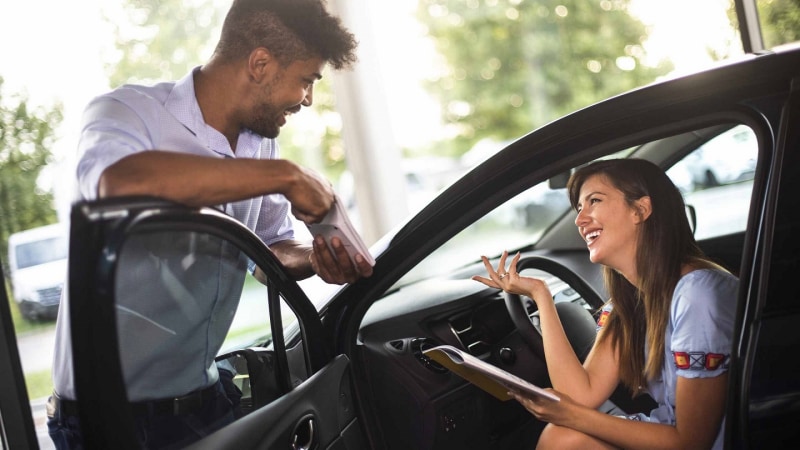Getting the most out of your car’s value, now

As a car owner or lessee, knowing your car's value is, well, more valuable than ever. These days, cars tend to stay reliable and serve their owners for longer periods than before, but demand for vehicles remains strong even as drivers continue to hold onto their cars.
As cars retain their value much longer than they have historically, car owners have additional leverage when it’s time to sell or upgrade that old car for a new one.
Estimating your car’s value
If you’re reading this, it’s likely you may be curious about your own car’s current value. Some of the major factors that will influence the value of your car are its age, mileage and condition.
You can reach out to your trusted dealer, who is already familiar with your make and model for an estimate. Alternatively, you can research your make and model’s value online and adjust your search variables according to your car’s mileage, condition and upgrades to be sure you get an accurate number. Chase Auto offers a free service to existing customers that allows you to get an estimated trade-in value for your car. Log in to chase.com/mycar to easily upload your vehicle’s information and see your car’s value. Then, with an estimated value in hand, you can start to investigate if and how to move forward.
What to do with a car you own
If you own your car, here are some interesting options to keep in mind:
- Trade-in your car: If you’re looking for your next vehicle, trade-in values remain high, which could give you more leverage when buying a new car.
- Sell it and walk away: If used car market prices remain high, and you no longer need your car, you might be able to sell it to a dealership or a private party and capture more in the sale than you normally would.
- Keep it a little longer: You may find yourself in a position where the cost of replacing your car is higher than your budget allows. In this case, you could try riding out the inflation and waiting for costs to level off or lower — but, sadly, there’s no guarantee they will.
What to do with a car you lease
If you lease your car, the following are some useful approaches to weigh:
- Apply your old lease to a new lease: If your leased car is worth more today than its predicted residual value, your dealer may be able to apply the difference toward a new lease.
- Buy-out your leased car: You may be able to “buy-out” your lease based on the predicted residual value. If that’s the case, you may be able to purchase the car at a relative discount from its current value. Once it’s yours, you can hang on to it or you may be able to sell it at a premium.
- Extend your lease: As inventory levels continue to stabilize, there may be an option to extend your lease based on your existing terms while you decide what to do about your next car or wait for your preordered car to arrive.
The bottom line
Whether you own or lease, understanding your car's value is essential to make an informed decision with your investment. As the auto market continues to recover from pandemic-related inventory shortages, you may continue to find the value of your existing vehicle is still at a historic high.
